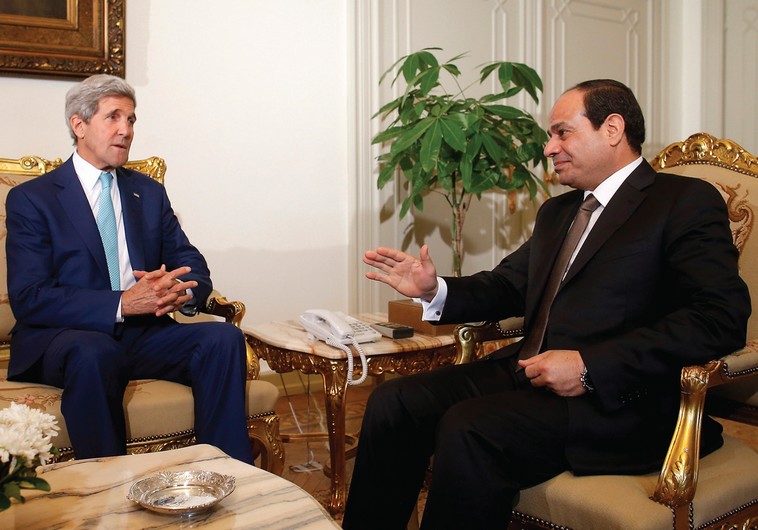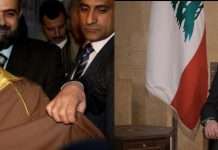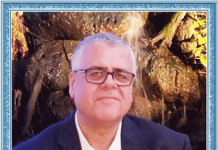‘الثورة’ الإسلامية يوم الجمعة في مصر قد تكون دامية
اريك تراجر/معهد واشنطن
26 تشرين الثاني/نوفمبر 2014
في يوم الجمعة 28 تشرين الثاني/نوفمبر 2014، بينما يستعيد الأمريكيون قواهم من سبات طعام “عيد الشكر”، قد تواجه مصر أكثر أيامها عنفاً منذ أكثر من عام. فقد أعلنت الجبهة السلفية – الجماعة الأصولية التي كانت قد عارضت الإطاحة بالرئيس محمد مرسي من «الإخوان المسلمين» في تموز/يوليو 2013 – عن «انتفاضة الشباب المسلم» في ذلك اليوم ضد حكومة الرئيس عبد الفتاح السيسي. وقد وافقت جماعات أخرى على المشاركة في الانتفاضة، من بينها «الإخوان المسلمين». وفي حين أنه من الصعب التنبؤ بحجم الاحتجاجات وتداعياتها، فإنها من المرجح أن تثير مواجهات حادة بين الشبان الإسلاميين وقوات الأمن الحكومية، لأن كلا الجانبين يعتبران نضالهما وجودياً.
وبالفعل، يشير المنظمون إلى انتفاضتهم بأنها «معركة على الهوية» ويسعون علناً إلى الإطاحة بالسيسي. وفي مقطع فيديو تم نشره من على اليوتيوب بتاريخ 15 تشرين الثاني/نوفمبر، وشوهد من قبل أكثر من 177,000 مرة حتى كتابة هذه السطور، يتهم الناشطون الشباب الاسلاميون الرئيس السيسي بأنه يمنع تطبيق الشريعة الإسلامية (على سبيل المثال من خلال «تعليم الرقص والشذوذ والزنا»)، والسماح لوسائل الإعلام بالقيام بـ «تشتيم النبي والإسلام ليل نهار»، ومعارضة إقامة الخلافة. وبالمثل، في مقطع فيديو موسيقي باسم “الانتفاضة” من تاريخ 22 تشرين الثاني/نوفمبر يطلق المغنون على السيسي لقب «الفرعون» ووزير الداخلية محمد إبراهيم بـ «هامان» ويساووهما مع الأشرار المذكورين في القرآن الكريم الذين رفضوا دعوة النبي موسى لعبادة الله.
وعلى نفس المنوال، أثار أنصار السيسي لغة دينية من أجل تشويه سمعة الانتفاضة. ففي بيان صدر مؤخراً، انتقد المفتي السابق المناهض للسيسي علي جمعة، الإسلاميين بقوله إن «دعواتهم للنزول بالمصاحف، إهانة للقرآن الكريم، وللدين الإسلامي». وأضاف أن «هذه الدعوات، تشبه دعوات الخوارج الذين قتلوا سيدنا عليّ، ومثل هؤلاء، لهم جزاء شديد يوازي جزاء من أهان القرآن بالسَّبّ»، مما يعني أن التمرد ضد السيسي هو غير إسلامي.
وكما هو الحال مع دعوات سابقة للتعبئة الجماهيرية ضد السيسي، من الصعب التنبؤ بمدى الإقبال الجماهيري على مظاهرات يوم الجمعة، ويمكن أن يكون ذلك مخيباً للآمال في النهاية. وعلى كل حال، فإن السلفيين المصريين منقسمون بشدة، وأكبر منظماتهم، “الدعوة السلفية” التي مقرها في الإسكندرية، قد دعمت السيسي بقوة ورفضت أحدث الدعوات للقيام بانتفاضة. وعلاوة على ذلك، نجحت قوات الأمن في قمع محاولات أخرى جرت في الآونة الأخيرة لحشد الإسلاميين وإن كان ذلك بطريقة وحشية. ولم تكن لأي من تلك المحاولات أي تأثير على المسار السياسي في مصر أو الأمن الداخلي. وتتمتع حكومة السيسي بمزيد من الدعم القوي في أوساط الجمهور، الذي يخشى من هذا النوع من عدم الاستقرار الذي تنذر به الانتفاضة المخطط لها. وبالتالي سوف ترحب كتلة أساسية من المصريين بحملة تقوم بها الحكومة ضد المتظاهرين، مهما كانت قاسية.
ومع ذلك، أثبت منظمو الانتفاضة فطنة استراتيجية. فهم يدعون أنصارهم إلى المشاركة في مسيرة تخرج من المساجد بعد صلاة الفجر، والتي سوف تمكّن المشاركين من التوحِّد في مجموعات، مباشرة قبل اشتباكها مع قوات الأمن، حيث يشجعهم منظمو الانتفاضة بشكل صريح على القيام بذلك. ويجري أيضاً إعطاء إرشادات وتعليمات للمشاركين للاحتشاد نحو ساحاتهم العامة المحلية، مما قد يؤدي إلى انتشار الاحتجاجات في جميع أنحاء المدن الكبرى في الوقت الذي لا يزال الظلام يخيم على مناطق الاحتشاد. وبالإضافة إلى ذلك، توحَّد نشطاء من «الإخوان المسلمين» وسلفيين مناهضين للنظام وراء الانتفاضة، الأمر الذي يمكن أن يعزز من الإقبال على المشاركة فيها. وسوف تشمل الاحتجاجات أيضاً مثيرو الشغب من رواد مباريات كرة القدم الموالين لمرسي والمعروفين باسم “الألتراس”، الذين يعرف عنهم بأنهم مقاتلين متحمسين ضد قوات الأمن.
ونظراً لأن الإنتفاضة تدعو صراحة إلى الإطاحة بالسيسي وتحث من أجل قيام مواجهة مباشرة، فمن المرجح أن ترد الحكومة بقوة لا يستهان بها. ولهذا السبب، فإن الصور التي ستأتي من مصر يوم الجمعة ستزعج على الأرجح صانعي السياسات في الولايات المتحدة وتحفز قيام دعوات جديدة لانتقاد القاهرة وربما معاقبتها. بيد، يتعيّن على واشنطن أن تقاوم هذه الإلحاح. وفي حين أن إدارة أوباما محقة في انتقاد القاهرة لتعاملها القمعي مع الاحتجاجات السلمية منذ الإطاحة بمرسي في الصيف الماضي، إلا أن انتفاضة يوم الجمعة هي دعوة صريحة للعنف.
وعلاوة على ذلك، لا ينبغي أن تكون هناك أية أوهام لدى واشنطن حول قدرتها على التأثير إيجابياً على الصراعات السياسية الداخلية في مصر. ومرة أخرى، فإن الحكومة والمعارضين الإسلاميين يعتبران نزاعهما وجودياً، وبالتالي يرى السيسي أن استيعاب المتطرفين هو بمثابة انتحار. وفي هذا السياق، تجدر الإشارة إلى أن الانتقادات المفرطة الموجهة تجاه القاهرة من المرجح أن تؤدي إلى تشجيع المتطرفين وتفاقم عزلة الحكومة المدعومة من الجيش – وكلاهما لا يصب في مصلحة واشنطن.
اريك تراجر هو زميل واغنر في معهد واشنطن.
Friday’s Islamist ‘Uprising’ in Egypt Could Be Bloody
Eric Trager/Washington Institute
November 26, 2014
Although past uprisings have been quickly snuffed out, the latest calls for mass protests have been more strategically savvy and explicitly violent than usual.
On Friday, while Americans are recovering from Thanksgiving food comas, Egypt might experience its most violent day in over a year. The Salafist Front — a fundamentalist group that opposed Muslim Brotherhood president Mohamed Morsi’s July 2013 ouster — has declared a “Muslim Youth Intifada” that day against the government of President Abdul Fattah al-Sisi, and other groups have signed on, including the Brotherhood. While it is difficult to predict the size and impact of the protests, they will likely spark severe confrontations between Islamist youths and government security forces, since both sides view their struggle as an existential one.
Indeed, the organizers are referring to their uprising as an “identity battle” and openly seek to topple Sisi. In a November 15 YouTube video, which has now been viewed nearly 172,000 times, Islamist youth activists accuse Sisi of preventing the implementation of Islamic law (such as by “teaching dancing, heresy, and adultery”), permitting the media to “insult the Prophet [Muhammad] day and night,” and opposing the establishment of a caliphate. Similarly, a November 22 “Intifada” music video calls Sisi a “pharaoh” and Interior Minister Muhammad Ibrahim “Haman,” equating them with Quranic villains who rejected the Prophet Moses’s call to worship Allah.
By the same token, Sisi’s supporters have invoked religious language to discredit the Intifada. In a recent statement, former Grand Mufti Ali Gomaa lambasted the anti-Sisi Islamists as “khawarij,” an epithet referring to the extremists who rebelled against the Caliph Ali in the seventh century. “Raising the Qurans is an insult to the Quran. The first act of betrayal that people committed was the raising of the Quran against Ali,” he said, implying that rebelling against Sisi is un-Islamic.
As with previous calls for mass mobilization against Sisi, the turnout for Friday’s demonstrations is difficult to predict and could ultimately underwhelm. After all, Egyptian Salafists are deeply divided, and their largest organization, the Alexandria-based al-Dawa al-Salafiya, has strongly supported Sisi and rejected the latest calls for an uprising. Moreover, security forces have successfully, albeit brutally, repressed other recent attempts at Islamist mobilization, none of which has had any impact on Egypt’s political trajectory or domestic security. The Sisi government further enjoys strong support among the public, who fear the kind of instability that the planned Intifada portends. A critical mass of Egyptians will therefore welcome a government crackdown on the protestors, no matter how severe.
Still, the Intifada organizers have demonstrated strategic savviness. They are calling on their supporters to march from mosques after dawn prayers, which will enable participants to coalesce into groups immediately before clashing with security forces, as the organizers are explicitly encouraging them to do. Participants are also being instructed to mobilize toward their local public squares, which could result in protests proliferating all over the major cities while it is still dark. In addition, Muslim Brothers and anti-regime Salafists have unified behind the Intifada, which could boost turnout. The protests will also include pro-Morsi soccer hooligans known as “ultras,” who are notoriously motivated fighters against the security forces.
Given that the Intifada is explicitly calling for Sisi’s overthrow and urging direct confrontation, the government will likely respond with significant force. For this reason, the images from Egypt on Friday will likely disturb U.S. policymakers and catalyze new calls for criticizing, and possibly punishing, Cairo. Washington should resist this urge, however. While the Obama administration is right to criticize Cairo for its repressive handling of peaceful protests since Morsi’s ouster last summer, Friday’s Intifada is an explicit call to violence.
Moreover, Washington should have no illusions about its ability to positively influence Egypt’s domestic political struggles. Again, the government and its Islamist opponents view their conflict as existential, and Sisi therefore sees accommodating the radicals as suicidal. In this context, excessive criticism of Cairo would likely encourage the radicals and further alienate the military-backed government — neither of which is in Washington’s interest.
**Eric Trager is the Wagner Fellow at The Washington Institute.




















